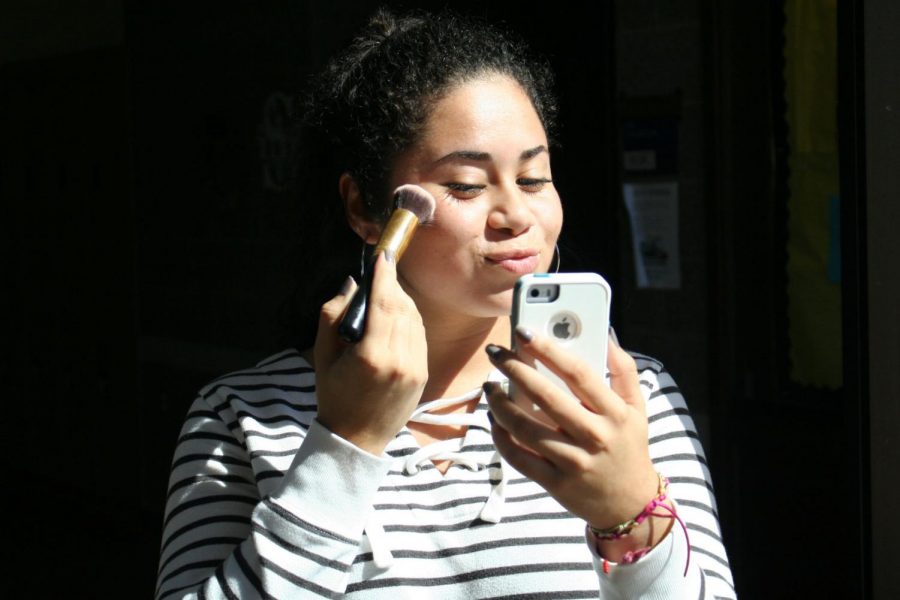The Effect of Makeup on Young Women
November 8, 2018
Growing up, most girls dream of being the beautiful princess with the white teeth, rosy cheeks and full lips. This is not the reality for many girls. Western beauty standards haunt young girls from the second they touch their first Beautyblender to their naturally beautiful faces. As students begin to age, the pressure to wear makeup continues to rise.
I remember entering middle school at the age of 11. I looked around at my friend’s formerly bare faces and was surprised. Growing up as a tomboy, makeup was never something that interested me. As sixth grade passed and the closest I had come to wearing makeup was lip gloss, my acne started to appear. In sixth grade, it was never that severe and did not make me feel self conscious, but as boys started liking girls and vice versa, I noticed I was never one of them. My classmates continued to mature and sought out significant others, but I did not feel mature enough. I did not feel like a woman.
In seventh grade, my mother bought me my first bottle of tinted moisturizer. A makeup consultant taught me how to apply it properly and gave me many other useful suggestions for things that would work for my complexion and face shape. I felt like I belonged with my friends, and it got me much more male attention, which is what should satisfy females, right? I guess I felt more grown up, but it made my acne worse and made me more self conscious in the end, which led me to wear more makeup and different products to try to make my skin appear more clear. I desperately tried to mask what I could not change, but in reality, everyone struggled with the same insecurities and did the same thing I did. I felt the weight of beauty standards more than I ever had before, and it revealed the negative effect those standards can have on girls growing up.
According to Young Girls are Starting to Wear Makeup Much Earlier, 65% of girls who regularly wear makeup started between the ages of eight and 13. In school years, this is about third to eighth grade. These crucial years help women discover themselves and become comfortable with who they are. Being able to be unapologetically natural is essential to maturing, and becoming comfortable with things often seen as flaws builds confidence. The tendency of young women to cover their “flaws” prevents them from really getting to know themselves. It makes taking ownership of imperfections feel obsolete. As teenagers, they are scared of what people might say or think about their imperfections, and this thinking pattern will only continue into adulthood, making them a slave to makeup, which is only what the beauty industry wants.
The beauty industry sets the standards for what is beautiful and takes advantage of insecurities to get women to buy their products. Using the flaws of young women to market products to correct these “issues” breeds paying customers. As their ability to become immune to these marketing tactics shrinks at a young age, the same women who were wearing makeup at age 11 to correct their flaws never overcame the fear of judgement and are still buying into the idea that they can achieve perfection with cosmetics at age 50. As girls become women, these thinking patterns are much harder to correct, and, in turn, the daughters they are raising inherit these same thought patterns and continue the cycle.
If parents limit the age at which they allow their children to wear makeup, their children’s self esteem will greatly benefit from the confidence they have built by not being able to wear makeup. Reinforcing the idea that beauty is not materialistic or superficial is crucial to creating a generation free of insecurity and self-hatred.




